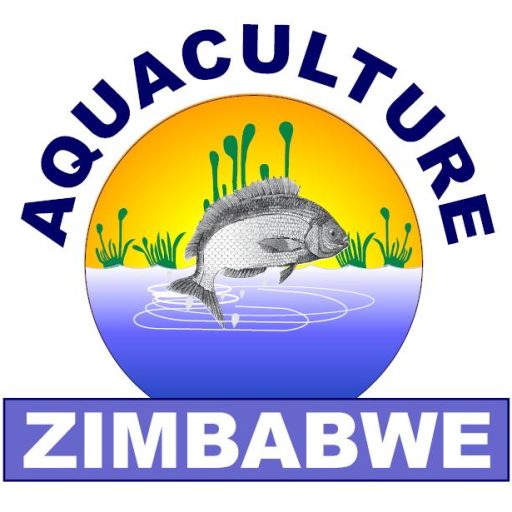Frequently Asked Questions
Fill in the volunteer registration form at https://aquazim.org/application-for-voluntary-work/
We work in over 13 districts in Zimbabwe
- Masvingo
- Bikita
- Gutu
- Zaka
- Chivi
- Bindura
- Mwenezi
- Chirumhanzu
- Chegutu
- Insiza
- Zvishavane
- Beitbridge
- Umzingwane
- Binga
- Hwange
- Kariba
- Kwekwe
- Gokwe South
- Mutasa
- Mt Darwin
- Chiredzi
- Chimanimani
Our Approach to Development:
Aquaculture Zimbabwe takes a holistic and community-driven approach to development. Rather than imposing top-down solutions, we work closely with local farmers, cooperatives, and stakeholders to understand their unique challenges and priorities. Our team of experts collaborate with communities to co-create sustainable, context-appropriate solutions that improve food security, economic opportunities, and environmental management.
Our development initiatives focus on providing hands-on training, infrastructure support, and access to quality inputs and markets. AQZ emphasizes knowledge sharing, peer-to-peer learning, and building the capacity of local aquaculture leaders and associations. By empowering communities to lead their own development, AQZ ensures the long-term viability and impact of their programs.
Our Ethical Framework:
- Environmental Stewardship: AQZ is committed to promoting aquaculture practices that minimize ecological harm and enhance biodiversity. They prioritize low-impact, nature-based solutions that protect water resources, soils, and local ecosystems.
- Social Equity: AQZ believes in inclusive development that benefits marginalized groups, including women, youth, and small-scale farmers. They actively work to address inequities and empower disadvantaged communities.
- Transparency & Accountability: AQZ operates with the highest standards of transparency, regularly reporting on their activities, impacts, and use of funds. They are accountable to the communities they serve as well as their donors and partners.
- Ethical Partnerships: AQZ cultivates mutually beneficial partnerships with government agencies, research institutions, NGOs, and private sector actors. They uphold principles of fair trade, intellectual property rights, and equitable benefit-sharing.
- Continuous Improvement: AQZ is a learning organization that constantly evaluates and adapts its approaches based on feedback, monitoring and evaluation, and emerging best practices in the field of sustainable aquaculture.
Building resilient communities
- Agriculture and Food Security: Cultivating prosperity from the ground up.
We are empowering communities through sustainable agriculture practices, ensuring food security for present and future generations. By equipping farmers with modern techniques and resources, we help them grow nutritious crops and raise healthy livestock, creating self-reliant communities.
- Environment and Climate Change: Nurturing nature for a resilient future.
Our commitment to environmental stewardship is at the heart of our efforts. We promote sustainable aquaculture practices that minimize environmental impact while maximizing productivity. By adapting to and mitigating the effects of climate change, we build resilient communities that thrive in harmony with nature.
- Disaster Preparedness and Response: Building communities that stand strong in the face of adversity.
We believe in proactive disaster preparedness to ensure the safety and well-being of communities. Through training, infrastructure development, and early warning systems, and anticipatory actions, we empower communities to effectively respond to natural disasters, minimizing loss and fostering resilience.
Economic Livelihoods Support
- Enterprise Development: Igniting entrepreneurial spirit for sustainable progress.
We are fostering a culture of entrepreneurship by providing technical assistance, training, and mentorship to aspiring and existing entrepreneurs. By nurturing innovative ideas and helping businesses thrive, we contribute to community development, job creation, and poverty reduction.
- Financial Inclusion: Unlocking economic opportunities for all.
We promote financial inclusion by providing access to financial services, such as financial literacy training, formation and nurturing of internal savings and loans associations, microloans, and insurance to underserved communities. By empowering individuals to manage their finances and invest in their future, the organization enables economic growth and reduces poverty.
Infrastructural Development
- Building strong foundations for resilient communities.
We invest in infrastructure development, including roads, irrigation systems, and storage facilities, to enhance agricultural productivity and improve access to markets. By building robust and sustainable infrastructure, we pave the way for economic growth, social connectivity, and overall community resilience.
Mainstreaming Cross-Cutting Issues
- Social Cohesion: Uniting communities for collective progress.
We prioritize social cohesion by promoting inclusivity, fostering dialogue, and building bridges across diverse communities. Our programs and initiatives aim to create a sense of belonging, respect, and understanding, strengthening social bonds and enabling collective action for sustainable development.
- Gender Justice: Empowering women and promoting equality.
We are committed to gender justice and equality. Our programs address gender disparities by providing women with equal opportunities for education, training, and leadership roles. By challenging gender norms and empowering women, we create more inclusive and resilient communities.
- Disability Inclusion: Ensuring equal opportunities for all abilities.
We strive for disability inclusion by removing barriers and creating accessible environments. Our initiatives promote education, employment, and social participation for people with disabilities. By embracing diversity and fostering inclusivity, we build stronger and more resilient communities.
- WASH (Water, Sanitation, and Hygiene): Ensuring access to clean water and sanitation for all.
We advocate for WASH practices to improve public health and well-being. Our programs focus on providing clean water sources, sanitation facilities, and hygiene education to communities. By ensuring access to these fundamental resources, we promote better health outcomes and enhance community resilience.
Over a $1 million worth of annual programs budgetary support for community resilience strengthening activities
